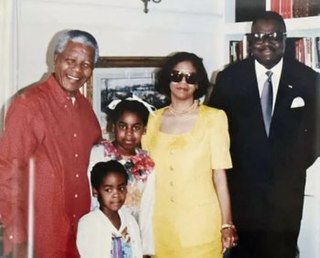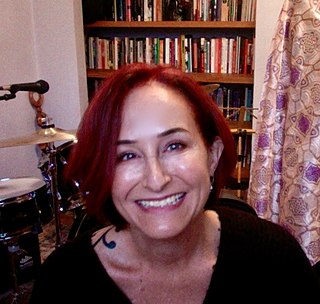Related Research Articles

Yoruba is a language spoken in West Africa, most prominently South western Nigeria. It is spoken by the ethnic Yoruba people. The number of Yoruba speakers is estimated at between 45 and 55 million. As a pluricentric language, it is primarily spoken in a dialectal area spanning Nigeria, Benin and Togo, with smaller migrated communities in Cote d'Ivoire, Sierra Leone, The Gambia, as well as Brazil as a cultural language in Rio de Janeiro (State) and Salvador, Bahia.

The Yoruba religion comprises the traditional religious and spiritual concepts and practice of the Yoruba tribe. Its homeland is in present-day Southwestern Nigeria which comprised Oyo, Ogun, Osun, Ondo, Ekiti, and Kwara as well as Lagos States, parts of Kogi state and the adjoining parts of Benin and Togo, commonly known as Yorubaland. It shares some parallels with the Vodun practiced by the neighboring Fon and Ewe peoples to the west and to the religion of the Edo people to the east. Yoruba religion is the basis for a number of religions in the New World, notably Santería, Umbanda, Trinidad Orisha, Haitian Vodou, and Candomblé. Yoruba religious beliefs are part of Itàn (history), the total complex of songs, histories, stories, and other cultural concepts which make up the Yoruba society.

Nigeria, the most populous African country, is divided between adherents of Islam, Christianity and traditional religion quite similar to polytheism though the ratio is uncertain. The majority of Nigerian Muslims are either non-denominational Muslims or Sunni and are concentrated in mostly the northern region of the country with some Christian population, the same way Christians dominate in the south with some Muslim population. Most Nigerian Christians are Protestant though about a quarter are Catholic.
Chief Wándé Abímbọ́lá is a Nigerian academician, a professor of Yoruba language and literature, and a former Vice-Chancellor of the University of Ife. He has also served as the Majority Leader of the Senate of the Federal Republic of Nigeria. Chief Abimbola was installed as Àwísẹ Awo Àgbàyé in 1981 by the Ooni of Ife on the recommendation of a conclave of Babalawos of Yorubaland.
Omolara Ogundipe-Leslie, also known as Molara Ogundipe, was a Nigerian poet, critic, editor, feminist and activist. Considered one of the foremost writers on African feminism, gender studies and literary theory, she was a social critic who came to be recognized as a viable authority on African women among black feminists and feminists in general. She contributed the piece "Not Spinning on the Axis of Maleness" to the 1984 anthology Sisterhood Is Global: The International Women's Movement Anthology, edited by Robin Morgan. She is most celebrated for coining the term STIWA or Social Transformation in Africa Including Women.
Babafemi Adeyemi Osofisan, known as Femi Osofisan or F.O., is a Nigerian writer noted for his critique of societal problems and his use of African traditional performances and surrealism in some of his novels. A frequent theme that his novels explore is the conflict between good and evil. He is in fact a didactic writer whose works seek to correct his decadent society. He has written poetry under the pseudonym Okinba Launko.

Nike Oshinowo is a Nigerian talk show host, entrepreneur, former pageant director and style icon.
Stephen Adebanji Akintoye, also known as S. Banji Akintoye, is a Nigerian-born academic, historian and writer. He attended Christ's School Ado Ekiti, Nigeria from 1951–1955, and studied history at the University College, Ibadan (1956–1961), and doctoral studies from 1963-1966 at the University of Ibadan, where he was awarded a PhD in History in 1966. He taught at the History Department at Obafemi Awolowo University, Ile-Ife, Nigeria, where he became a professor and Director of the Institute of African Studies from 1974-1977. He has also taught African History in universities in the United States including the University of South Florida, Tampa, Florida; Montgomery County Community College, PA, and Eastern University, St. Davids, Pennsylvania. Akintoye has written four books, chapters in many joint books, and several articles in scholarly journals. He took a leading part for some time in the politics of Nigeria and served on the Nigerian Senate from 1979–1983 during the Second Republic. He currently lives in Pennsylvania in the United States.

Lekan Balogun is a Nigerian dramatist and theatre director. His plays include Moremi Ajaasoro, performed as the Western zone's entry for the Festival of Nigerian Plays ; Olofin Ajaye and The Mote in the Eye, NANTAP International Theatre Day, 2008 and 2009/20th Anniversary Play projects; The Rejected Stone, an African retelling of the popular fable Cinderella, Alaafin Kanran, Farewell and Dirty Circle for Royal Court Theatre, London, excerpt performed at the Sloane Square, Jerwood Theatre, London, in 2009 with sponsorship from the British Council, Nigeria & GENESIS Foundation, UK; The Ghost Catcher; Goodbye Yesterday; Our Tomorrow Today; Ijebu 1832; For Heroes and Scoundrels, among others. He wrote and directed a play about Zulu folklore (Izibongo) and history in 2008 with the title Shaka, the Zulu legend.

Oyèrónkẹ́ Oyèwùmí is a Nigerian gender scholar and full professor of sociology at Stony Brook University. She acquired her bachelor's degree at the University of Ibadan in Ibadan, Nigeria and went on to pursue her graduate degree in Sociology at the University of California, Berkeley.
The following is a timeline of the history of the city of Ibadan, Oyo State, Nigeria.
The Omoluwabi is a philosophical and cultural concept that's native to the Yoruba people. It's used to describe a person of good character. The omoluabi concept signifies courage, hard work, humility and respect. An omoluabi is a person of honor who believes in hard work, respects the rights of others, and gives to the community in deeds and in action. Above all, an omoluwabi is a person of integrity.

Chief Antonio Oladeinde Fernandez was a Nigerian billionaire, business magnate and diplomat, a Pan-African leader and Permanent Representative of the Central African Republic to the United Nations. He was considered one of the richest men in Africa. In addition to a variety of other chieftaincy titles, he held the title of the Apesin Ola of the Egba clan of Yorubaland.
Abimbola Ayodeji Abolarinwa (born c. 1979, is a Nigerian physician. She was the first female urologist in Nigeria.

Olakunbi Ojuolape Olasope is a Professor in the Department of Classics at the University of Ibadan in Nigeria. She is an expert on Roman social history, Greek and Roman theatre, and Yoruba classical performance culture. Olasope is known in particular for her work on the reception of classical drama in West Africa, especially the work of the Nigerian dramatist Femi Olofisan.

Folake Oritsegbubemi Onayemi is Professor of Classics and Head of the Department of Classics at the University of Ibadan in Nigeria. She was the first woman to be awarded a PhD in Classics in Nigeria and the first black woman to be Professor of Classics in sub-Saharan Africa. She is an expert on comparative Greco-Roman and Nigerian literature, cultures, and mythology, particularly relating to the roles and representations of women.
Olufunke Adeboye is a Nigerian Professor of Social History at the Department of History and Strategic Studies, University of Lagos, Nigeria. An award-winning author, she is the incumbent Dean of the Faculty of Arts, University of Lagos. Adeboye's research interests include: gender in Africa, pre-colonial and colonial Nigerian history, nineteenth and twentieth century Yoruba society, African historiography, and Pentecostalism in West Africa. In 2013, she won the Gerti Hesseling Prize awarded by AEGIS for the best journal article published in a European African Studies journal by an African scholar.
Mobolanle Ebunoluwa Sotunsa, also known as Bola Sotunsa is a Nigerian academic. She is Professor of Gender Studies and African Oral Literatures in the Department of Languages and Literary Studies, Babcock University.
Aisha Abimbola, born in Epe, Lagos State, was a Nigerian actress and a Yoruba movie star.

Debbie Klein is an American anthropologist. She is a professor in the Anthropology Department at Gavilan College. Since 1990, Klein has been conducting extensive collaborative research in Nigeria with Yorùbá performing artists. In 2017, recognizing Klein's decades of collaborative written and video documentation of Yorùbá culture, the town of Èrìn-Òșùn, Nigeria bestowed an honorary chieftaincy title, Iyalode of Èrìn-Òșùn, upon Klein alongside her long-term mentor and collaborator, Chief Làmídì Àyánkúnlé. Throughout her career, Klein has advocated at local, state, national, and international levels on behalf of faculty and students within the realm of public higher education, most recently as president of the Faculty Association of California Community Colleges (2019-21).
References
- ↑ https://liberalarts.utexas.edu/aads/faculty/aaa3475
- ↑ https://scholar.google.com/citations?user=4Z0JYQ0AAAAJ&hl=en
- ↑ http://independent.academia.edu/AbimbolaAdelakun/CurriculumVitae
- ↑ "A gleam of Nigerian literature online". The Nation. Archived from the original on 2011-03-26. Retrieved 2009-11-21.